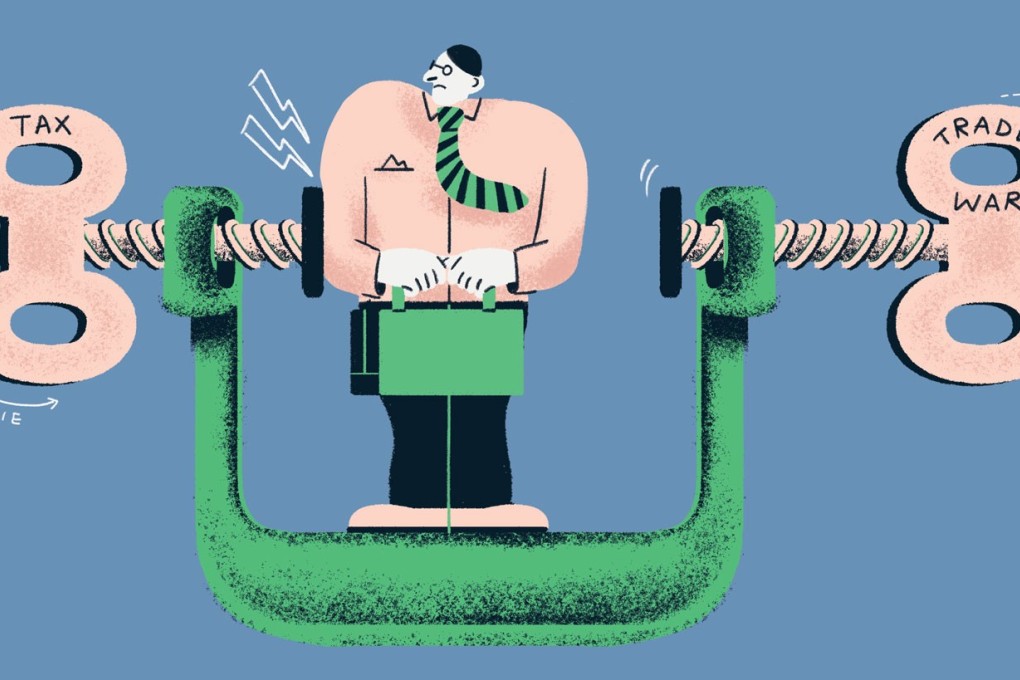How US trade war could leave Chinese private firms at risk of being ‘taxed to death’
- A rising tax burden is placing additional stress on private sector firms at a time when economic growth is slowing
- Despite the key economic role played by the private sector, Beijing has limited room for manoeuvre when it comes to cutting taxes

Chinese entrepreneur Lee Teng shut down his company last year, overwhelmed by his tax burden.
In mid 2016, China replaced its business tax with a value-added tax (VAT) across all industries. Even though the adjustment was intended to reduce the overall tax burden on companies, the effective tax rate on Teng’s Beijing-based firm rose by a percentage point.
This represented a considerable increase for a new-energy engineering company with 20 employees and annual revenues of 15 million yuan (US$2.2 million).
“I also needed to set aside as much as 40 per cent of my profits to pay social security tax premiums for my employees,” said Teng. “The collection process has become more and more rigorous in recent years [and] previous tax reduction methods no longer work.”
“Every cost is rising – staff salaries, rents, and utilities. The only thing that goes down is the value of orders. It is very hard to survive now,” he added. Teng is not alone in his plight. And this spells trouble for the Chinese economy.
Economic growth is already decelerating due to the effects of both the government’s programme to reduce debt and the trade war with the United States.
